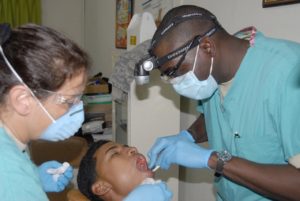Professional Boundaries
 In a July 17, 2025 decision, the Court of Appeal of Alberta found the suspension from practice to be unduly harsh and modified sanctions imposed on Dr. Charkhandeh, Appellant.
In a July 17, 2025 decision, the Court of Appeal of Alberta found the suspension from practice to be unduly harsh and modified sanctions imposed on Dr. Charkhandeh, Appellant.
The Appellant was a licensed dentist in Alberta and focused his practice on sleeping disordered breathing and sleep apnea. He joined the Rabbit Hill Dental Studio that had overlapping ownership and a common management company. He hired and trained T.S., a dental assistant and technologist who became his assistant and who hoped to have an interest in a stand-alone dental laboratory and managed the Artisan Lab.
There were multiple encounters between the Appellant and T.S., including attempts to kiss T.S. and other sexual acts from November 2012 through 2013 in response to Appellant’s threats to fire employees. T.S. attended counseling, quit her job, and informed the owner of the practice. An internal investigation was conducted; however, there was no corroborating evidence, and Appellant asserted that the encounters were consensual. No action was taken by the Edmonton Police. The College of Dental Surgeons of Alberta (College) initiated an investigation and considered six (6) allegations of unprofessional conduct at a hearing. The College determined that the Appellant owed T.S. a professional duty to apply ethical principles, given his position of power, and canceled the Appellant’s registration. The Appellant sought review to the Appeal Panel of the Council of the College of Dental Surgeons. The Appeal Panel upheld the Hearing Tribunal findings.
Upon appeal, this Court found that the standards of review applied by the Appeal Panel were consistent with caselaw. The allegations were well within the mandate of the College as the position that sexual assaults by a dentist involving a person working in the same dental studio would negatively impact the profession and the profession’s stature by the public. This Court, however, determined that the “expulsion from the practice of dentistry was unreasonably harsh” and failed to consider Appellant’s prior unblemished practice and the length of time since the incidents without further reoffending. This Court also highlighted the Appellant’s rehabilitation. The sanctions were determined to be a suspension of the license for three (3) years to protect the public and to act as a deterrent.
Order modified.

